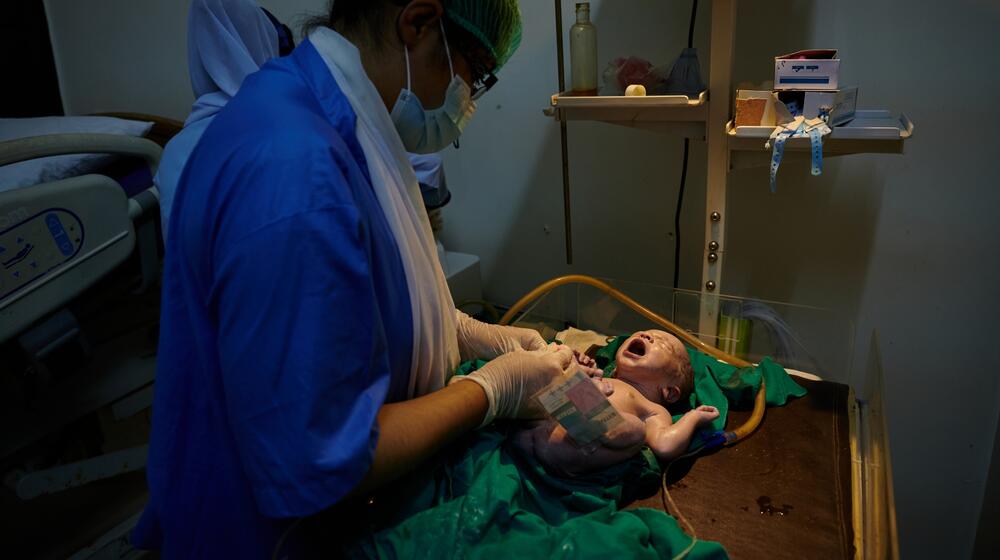News
Compounding crises endanger women and girls amid Pakistan’s unprecedented flooding
- 19 October 2022
News
SINDH PROVINCE, Pakistan – Amid the worst-ever flooding Pakistan has ever faced, Guddi and her 8-month-old daughter, Akshara, are both struggling with hunger. Akshara was recently taken to a clinic to be treated for severe acute malnutrition, and a cannula remains attached to her hands so that she can receive medication quickly. Meanwhile, Guddi is unable to breastfeed her third daughter.

“Do you think I have anything in me to feed her?” she said.
Of the tens of millions of people affected by flooding, the result of devastating monsoon rains that have engulfed one third of the country, 1,700 have died. More than six million people remain in dire need of humanitarian assistance.
Among them, more than 1.6 million women are of reproductive age and nearly 130,000 are pregnant. For these women, the risk of displacement, injury and death due to the flooding compounds with that of gender-based violence and the possibility of dangerous disruptions to reproductive health care.
“Women and girls bear the brunt of the devastating impacts of climate change and the rising prevalence of natural disasters,” UNFPA Executive Director Dr. Natalia Kanem said in a statement. “When crisis hits, women do not stop getting pregnant and giving birth.”
About 750 health facilities across Sindh and Balochistan provinces have been damaged. In response, UNFPA is furnishing affected areas with hospital tents, reproductive health kits and urgently needed supplies so that vital health services can continue. More broadly, UNFPA’s emergency response aims to provide women and girls with life-saving reproductive health care, medical equipment and medicine, gender-based violence services and dignity kits.
“UNFPA is committed to supporting the people of Pakistan as they respond to this catastrophe,” Dr. Kanem said. “Our humanitarian efforts will respond to the needs of women, girls and vulnerable populations in their time of greatest need.”